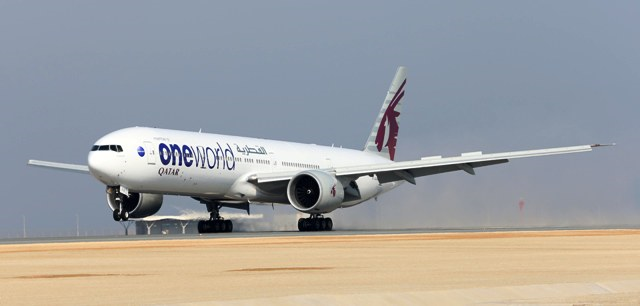Delivering on alliances

26 April 2016
The airline business is too complex for any individual as that you could check all aspects. That’s why I tend to believe in the basics being delivered and focus on understanding the things one should not take for granted. That is a mistake, as my experience as Privilege Club member of Qatar Airways has shown.
I remember my curiosity when discovering the concept of alliance some 20 years ago when they started to see the light of the day. The basic idea of seamless travel between partners with a special focus on the needs of frequent flyers was indeed compelling – and it has changed the way of travelling for frequent travellers indeed since then.
It became quickly obvious what you could expect from these alliances, such as mileage accrual and redemption across all partners or status recognition, and what kind of benefits were rather limited to specific partners, such as bonus miles, complementary upgrades or even mileage upgrades (SkyTeam – will you ever resume the work to offer this across the alliance??). And although all three alliances have considerably grown from the initial 5 or 6 founding members they had in the nineties, these basics have not really changed since then. [Etihad, stop being upset – but really nobody in the industry counts your construct as alliance. So three IS the right number!]
That’s at least what I thought until the other day when I came to the point to redeem my miles from Qatar Airways’ Privilege Club, one of the latest oneworld members since late 2013. Understanding the finances of FFPs, I obviously know that airlines try to steer award demand as much as possible to the own airline in order to avoid corresponding payments for award flights to partners. But the appropriate balance needs to be found between that legitimate objective and a certain level of customer friendliness. If the own airline has no availability on the desired date, I would rather expect an airline to check availability on partner airlines on that date than suggesting to me a travel date two weeks earlier or later – and ideally even without a customer insisting too much on it as not every frequent flyer is necessarily familiar with the system as such.
For instance, if I want to fly, as Privilege Club member, from Paris to Hong Kong on oneworld, my first choice would obviously be Cathay’s nonstop service. If this is not possible, my next preference would be a connection at the European end of the journey, hence British Airways or Finnair. Qatar Airways with a 3-hour transfer connection in the middle of the night half way somewhere in the desert is definitely only my last resort – irrespectively of the high quality on-board product. Simply because I tend to sleep between midnight and 3am.
So when expressing this to the Privilege Club call center, I felt, to put it mildly, resistance. Only after insisting a bit harder, I’ve got a truly surprising reply: Privilege Club members would not be entitled to redeem miles on partners, where they could, even if only theoretically, fly on Qatar Airways. Hence on Paris to Hong Kong. Or on any British Airways flight from London to Asia.
Somewhat intrigued, I’ve continued my award investigation: Paris-New York on American, OpenSkies or British Airways – no, you have to fly on Qatar via Doha I was told, transforming a 7-hour journey into a 20-hour journey. Paris to Rio on Iberia – nope, please take Qatar Airways to Sao Paulo and there we will connect you to our (non-oneworld) partner Gol. No joke.
Qatar Airways confirmed to me later that this, of course, does not correspond at all to their official policy as they would, of course, provide award flights on any oneworld partner on all routes, but that I’ve became victim of an internal training issue in their call center. Fair enough, but am I supposed to ask next time when I get a strange or just unsatisfying reply from somebody “Is this true or do you have a training issue?”…
Ultimately, such experiences destroy a lot of confidence into the principle of alliances as such since customers would not necessarily question the replies they get from customer service, but simply turn their back to such programs.
While each of the alliances is preparing for its respective 20-year celebration, it might be a good time to get airlines aligned to the basic ideas and their delivery again. Anybody not delivering the basics in practice – not on paper – has no place in an alliance, as simple as that. Consistency is crucial for credibility as exceptions will otherwise kill the initial and valuable idea of alliances. And such issues are definitely not limited to my Qatar Airways experience, but occur with various carriers at all alliances.
This is even more crucial since there is still no true alternative to alliances at a global scale, in absence of the possibility to create true cross-border mergers. While some large airlines may put today a stronger strategic focus on bilateral partnerships such as joint ventures, alliances remain by far the most relevant form of cooperation for the majority of member airlines, delivering clear value to them. The alliance organisations are under obligation here to ensure that this continues to be the case.







